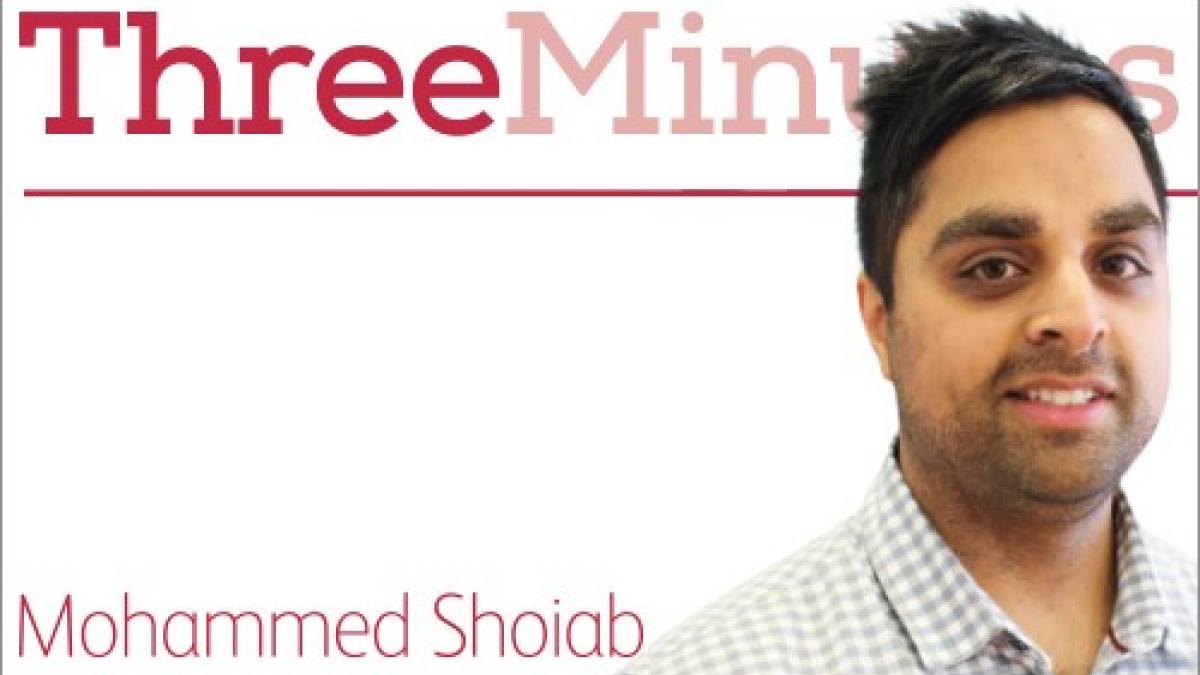Physiotherapist Mohammed Shoiab is spreading the word about adapted pain self-management among people of various cultures and faiths.

You spoke at a recent CSP event?
At a black and minority ethnic (BME) network meeting, we explored what culture is and how it influences a patient’s perception and expression of pain. It’s good to be aware of how culture influences moods, beliefs and expectations around physiotherapy in general. The concept of rating pain on a scale of zero to 10 is bizarre to many people, just as the notion of self-management is not universally understood. It is important not to stereotype and to realise that all members of a cultural group don’t necessarily subscribe to all the values of the group. We need individualised care. The Health and Care Professions Council standards of proficiency (2013) set out in sections 5, 8 and 13 the levels of awareness we should have in regard to culture. The CSP has further information too. See here.
Why is this work important?
It’s another way of breaking down barriers to engage with the patient. That’s why, in many cases, simply translating pain self-management material and using interpreters to convey exactly the same message may still not work. You are able to build a deeper rapport with a patient to engage in behaviour and lifestyle change. It’s not only about improving equality and diversity, but equity of service. In an adapted pain management service, such as the one designed for Urdu speakers in Bradford, patients say it is like finding a light at the end of a tunnel, as they previously struggled to come to terms with living with pain and lacked access to a language or culturally specific source of information. Many tears are shed.
Can others learn from the Bradford model?
The work with the chaplaincy service was pioneered by the late Gill Fletcher, a senior physiotherapist who contributed towards a culturally adapted approach to pain management that won awards for innovation, notably in 2005. Key elements were to show sensitivity to other people’s religious and cultural practices, not to assume that all members of a religion are observant, and not to ‘preach’ or try to convert anyone. As the Muslim chaplain Mohammed Arshad found, a self-management rehabilitation approach may be met with apprehension. These beliefs are mainly driven by culture rather than religion – in fact, Islam teaches that you should take measures to protect your health. And, for example, the process of praying provides in itself a low to moderate intensity form of daily exercise, which helps to improve the strength and stamina of the heart muscles. A podcast by Pain Concern, titled Biopsychosocial and Spiritual? provides extra insights.
This approach would require listening to the patient and what their beliefs and expectations of a self-management approach are in relation to persistent pain. If the patient expresses views in keeping with a faith, then the NHS trust’s chaplaincy service may be of help in some cases. It’s also important to remember that one size doesn’t fit all.
How can members find out more?
Culturally adapted material suitable for some Muslim patients is freely available on the Physiotherapy Pain Association website. And with Pete Moore’s permission paintoolkit.org I released a version of the Pain Toolkit video in Urdu.
What support have you had?
I received support from the physiotherapy department, Living with Pain service and Tracy Sanderson, who nurtured me in the early days, and the chaplaincy service at Bradford Teaching Hospitals NHS Trust. Also, my time as an undergraduate at the University of Bradford on pain neuroscience and communication more than 10 years ago inspired my journey.
What’s next?
We were the first team in the UK to truly integrate a patient’s cultural perspective by using chaplaincy services within a multidisciplinary pain service. I want to consolidate our achievements and, potentially, collaborate with pain physiotherapists in Australia who are researching the influence of culture on pain in different groups. I have taken an active role in the CSP’s BME network and will see what opportunities arise.
- Mohammad Shoiab is a specialised pain management physiotherapist with Bradford Teaching Hospitals NHS Trust’s Living with Pain team. Email shoiab@hotmail.co.uk
Author
Mohammad Shoiab is a specialised pain management physiotherapist with Bradford Teaching Hospitals NHS Trust’s Living with Pain teamNumber of subscribers: 2




































